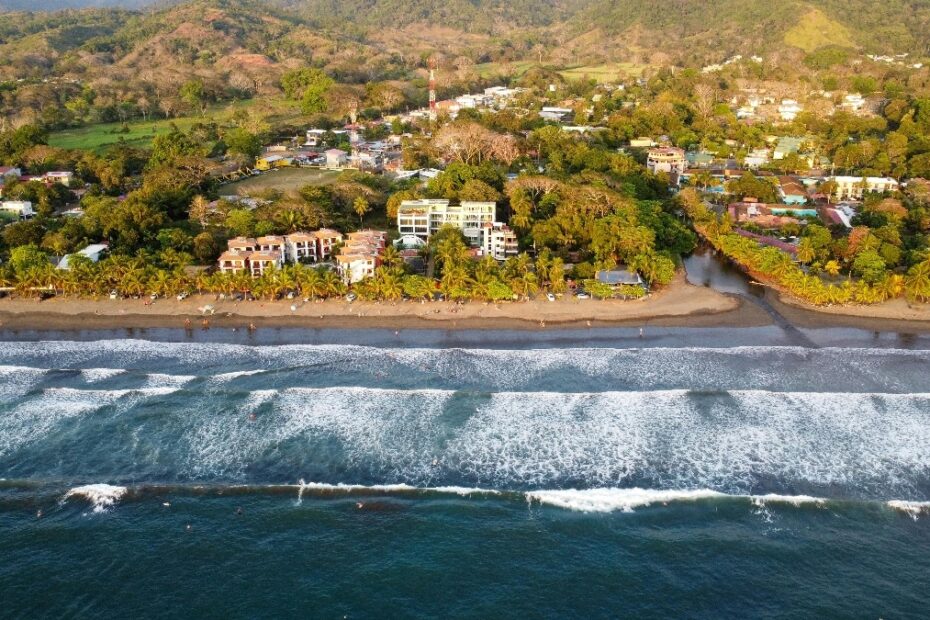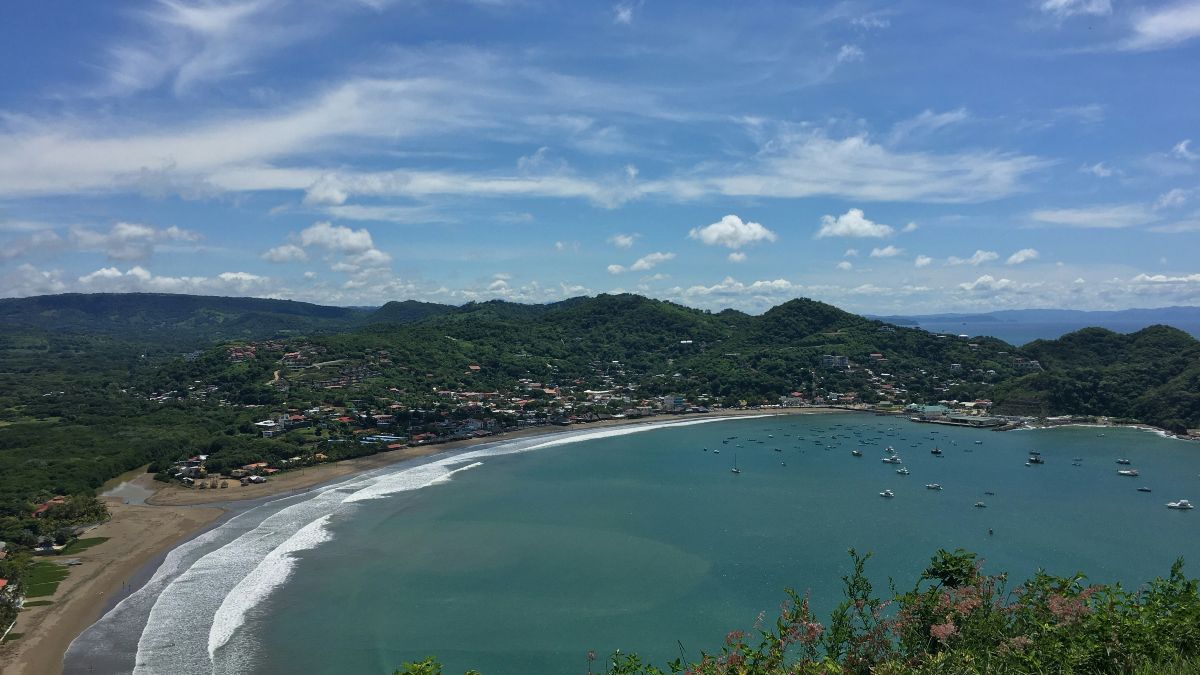A rise in violent incidents at short-term rental homes has renewed calls for Costa Rica to enforce safety standards, formal registration, and platform accountability before its reputation takes further damage.
High-profile crimes against tourists in Costa Rica, particularly those staying in vacation rental homes, have drawn growing concern over the past five years. While most visits remain safe, the country’s rapid rise in unlicensed short-term rentals has created a weak link in its tourism safety chain. These properties, often operating outside inspection or registration systems, have been the setting for a series of violent and well-publicized incidents that have affected how travelers view the country’s security.
Rising Crime and Falling Confidence
Costa Rica’s broader security picture provides important context. In 2023, the country recorded over 900 homicides, the highest number in its history. Although the rate eased slightly in 2024, it remains much higher than Ticos are traditionally used to, with only Belize and Honduras reporting higher rates in Central America. Now, according to the Judicial Investigation Agency (OIJ), Costa Rica is on track to end 2025 with between 880 and 900 homicides nationwide.
The OIJ also documented more than 6,300 crimes against tourists in 2024, concentrated in beach communities around the country. These figures coincide with a clear downturn in visitor arrivals. June 2025 tourism numbers were down 4.8 percent compared with the same month a year earlier, marking the eighth straight monthly decline. Industry observers now openly cite public safety, along with rising costs and the value of the Costa Rican colón, as key factors in that slowdown. In this climate, violent crimes occurring in vacation rentals carry particular weight, reinforcing the need to close regulatory gaps that leave guests and hosts exposed.
Exploring the 2024 Costa Rica homicide rate in context of regional trends. While Costa Rica saw some modest improvement on 2023, it still ranks the third highest in Central America as other countries continue to show significant progress. https://t.co/2kuUhaP8MU
— Central America Living (@VidaAmerica) February 27, 2025
Some Documented Incidents in Costa Rica
Over the past couple of years, a handful of cases have generated extensive local and international media coverage. Each points to the same vulnerabilities: lack of oversight, limited law-enforcement presence in coastal areas, and poor accountability between property owners, managers, and booking platforms.
- November 2018 – San José (Carla Stefaniak case): A 36-year-old U.S. visitor, Carla Stefaniak, was murdered while staying at a vacation rental in San José. A security guard employed at the property was later convicted and sentenced to 16 years in prison. The case drew international attention and raised early questions about host screening and operating controls in properties marketed on Airbnb.
- July 2025 – Tamarindo (Christopher Deir case): A 40-year-old Canadian tourist was shot and killed during a nighttime home invasion at a rental home near Tamarindo. The intruder opened fire after entering the property, taking cash and a phone before escaping. Reported widely in Costa Rica and abroad, the case prompted renewed debate about security in Guanacaste’s rental sector. A Tico Times report on this incident also mentioned another Canadian visitor, identified only as Heath, who was attacked earlier in the year by three masked intruders in a separate Tamarindo rental. He was wounded with a sharp weapon and escaped to a hospital. Both incidents reinforced growing concern over organized break-ins targeting tourists along Costa Rica’s northern Pacific coast.
- November 2023 – Jacó (U.S. family invasion): A U.S. family staying in a beachfront Airbnb reported a violent home invasion in which masked gunmen held adults and children at gunpoint, demanding passports, cash, and access to a safe. The account, published on the 100Dad.com blog, described attackers who appeared familiar with the property layout and guard schedules. Airbnb’s limited follow-up and the host’s continued operation of the listing highlighted the lack of accountability once incidents occur.
- May 2024 – Playa Negra (attempted break-in): A honeymooning couple described an attempted nighttime break-in at their beachfront rental, with multiple suspects using flashlights to approach the house. They barricaded themselves inside as alarms sounded, but police never arrived. Shared widely on Reddit, the story triggered discussion among travelers about response times and the vulnerability of isolated vacation homes.
The above represent some of the worst incidents in recent years and taken together, they reveal recurring weaknesses: isolated houses, minimal on-site security, limited police coverage in coastal areas, and weak accountability between owners, managers, and platforms. Several reports suggest inside knowledge of guest arrivals or guard schedules.
The Global Picture
Short-term rental safety problems aren’t unique to Costa Rica, of course. Around the world, high-profile cases have pushed governments to tighten oversight, enforce safety standards, and compel platform cooperation.
- Mexico City (2022): Following the deaths of three American tourists from carbon monoxide poisoning in a rental apartment, city officials began drafting rules requiring detectors and safety audits for vacation rentals.
- United States (2024): A CNN investigation revealed that Airbnb had internally tracked thousands of indoor-camera complaints without disclosing them publicly, leading several states and municipalities to propose new disclosure and reporting requirements for short-term rental platforms.
- Columbus, Ohio (2024): After a fatal shooting at a short-term “party house,” the city amended its zoning code to limit where rentals can operate, imposed occupancy caps, and strengthened penalties for unlicensed hosts. Los Angeles and Chicago have taken similar enforcement steps in response to safety and nuisance complaints.
- New York City (2023): Local Law 18 established a mandatory host registration system. Platforms such as Airbnb and Vrbo are now barred from processing payments for unregistered listings. Tens of thousands of illegal rentals were removed within months of enforcement.
- Scotland (2023): A nationwide licensing program now requires all short-term rentals to meet hotel-equivalent safety and insurance standards, including verified smoke and carbon monoxide detectors. Operating without a license carries penalties.
- Barcelona (2025): Following mounting safety and housing concerns, Barcelona announced plans to phase out tourist-apartment licenses entirely by 2028. Spain’s Constitutional Court upheld the measure earlier this year, confirming local governments’ power to restrict or ban short-term rentals.
Together, these examples show a clear pattern: when unregulated vacation rentals begin generating safety incidents or nuisance, governments respond by requiring formal registration, verifying safety standards, and making platforms share data with enforcement agencies.
The Enforcement Gap in Costa Rica
Costa Rica already requires short-term rental operators to register with the Costa Rican Tourism Board (ICT), but compliance is inconsistent. Many properties advertise without a registration number, and penalties are rarely applied. Even where rules exist, enforcement capacity is limited. Municipalities in beach and tourist areas often lack inspectors and legal authority to verify compliance.
Addressing issues of crime and safety for vacation rentals doesn’t require reinventing the wheel. Other destinations have already shown what works: clear registration, consistent safety standards, and real enforcement. Costa Rica can apply the same principles through practical, achievable measures such as the following:
- Make registration enforceable. Require a valid ICT registration number on every listing and block payments to unregistered hosts, similar to New York City’s model.
- Set minimum safety standards. Require functioning smoke and carbon monoxide detectors, fire extinguishers, and clear emergency contact instructions in Spanish and English.
- Screen property staff. Any employee or contractor with access to a rental should be vetted and recorded through the ICT registry.
- Mandate rapid reporting. Platforms and hosts should be legally required to notify both ICT and OIJ within 24 hours of any violent or safety-related incident.
- Use tax revenue for oversight. Allocate a portion of short-term rental tax collections to fund municipal inspection teams in high-volume beach towns.
Costa Rican hotels vs. Airbnb: Who wins, who loses? Our new article explores the impact of short-term rentals on local communities and the tourism industry. Pura vida under pressure?https://t.co/jRZmmYrt9m
— Central America Living (@VidaAmerica) October 16, 2024
Why Regulation Matters Now
Debate around short-term vacation rentals has often centered on gentrification, issues around local housing, and competition with hotels. Those issues remain important, but the immediate concern is safety. When unregulated properties become associated with violent crime or serious safety failures, it affects visitors, neighbors, and Costa Rica’s image abroad.
Airbnb regulation in Costa Rica is not anti-tourism. It is a way to protect visitors, residents, and the country’s reputation. With visitor numbers declining and violent incidents continuing to make headlines, stronger oversight of short-term rentals is one of the most practical steps Costa Rica can take to reduce risk and restore confidence in its tourism industry.



